CLARIN is an ERIC-type distributed research infrastructure that aims to provide access to digital language data – written, spoken and multimodal – and to integrate them at European level with advanced search, access and analysis tools, serving scholars in the Humanities and Social Sciences to support innovation and competitiveness.
The operation, maintenance and continuous expansion of the infrastructure is ensured by a network of data centres – currently more than 50 centres form the backbone of CLARIN – operating in the member countries, implemented according to technical and organisational specifications, defined by CLARIN so as to ensure consistency within the entire infrastructure. The centres provide state-of-the-art digital repositories – repositories – which, through a unified access service, make advanced data and analysis tools available to the scientific and production community for conducting high-level research. In accordance with the ERIC Statutes, by joining CLARIN, the Italian Ministry undertakes to contribute to the infrastructure by supporting and integrating the country into the federation. Coordination activities are entrusted to the CNR, which coordinates (i) the national CLARIN-IT Consortium, (ii) the implementation of the national centre with the certified ILC4CLARIN repository, (iii) user involvement, and (iv) knowledge transfer and training activities within the national community.
People
Monica Monachini, National Coordinator
Monica Monachini (F), Research Director, CNR-ILC. Head of the LaRI Linguistic Resources and Infrastructures group. She is the national coordinator of CLARIN-IT, the Italian node of the European Research Infrastructure CLARIN-ERIC. Her research interests include: corpus linguistics; lexicology and computational lexicography; lexical semantics; language resources for automatic language analysis tasks; lexicons, ontologies and terminologies; metadata, standards, models and formats for publishing language data as open data. She represents the CNR on the Terminology Committee in UNI; she is a UNI delegate in the ISO TC37 SC4 Language Resources Management Committee. She has published over 150 articles in journals, books and conferences at international level and organised events of scientific interest. She has participated and participates in numerous national and international infrastructure initiatives; in particular, the SSHOC cluster project, ESFRI SSH sector, within the European Open Science Cloud; the TRIPLE project and the ELEXIS project. She conducts training activities through the responsibility of assignees and PhD students; she is a member of the Humanism and Technology Doctoral College at the University of Macerata. She is a member for IL DSU of the Scientific Committee of the CNR ILC Venice site at Ca’ Foscari.
The Digital Research Infrastructure for the Arts and Humanities (DARIAH) aims to improve and support digitally-enabled research and teaching in the arts and humanities. DARIAH is a network of people, skills, information, knowledge, content, methods, tools and technologies from member countries. It develops, maintains and operates an infrastructure to support ICT-based research practices and support researchers in their use to construct, analyse and interpret digital resources. Working with communities of practice, DARIAH brings together individual activities at the forefront of the digital arts and humanities and scales up the results at the European level. It preserves, provides access to and disseminates the research resulting from these collaborations and ensures compliance with best practices and methodological and technical standards.
DARIAH was established as the European Research Infrastructure Consortium (ERIC) in August 2014. Currently, DARIAH has 20 members, 1 observer and several cooperating partners in six non-member countries.
People
Emiliano Degl’Innocenti, National Coordinator
PhD, researcher at the CNR, coordinator of DARIAH-IT. Since 2002, he has managed several DH projects, coordinating working groups at national and EU level. Gradually focusing on the management of Research Infrastructures, he worked as coordinator of the RESTORE project and joined the PARTHENOS, IPERION-HS (as Task Leader) and SSHOC (Task, WP Leader) projects (H2020). Appointed interim European coordinator for the DIGILAB platform of E-RIHS, in 2019 he was appointed scientific director of the PON project DARIAH.it (PIR01_00022), the main RI development project in the humanities in Italy.
Carmen di Meo, Coordination Officer
Carmen Di Meo, PhD, is an Art Historian based in Lucca, Tuscany. After her PhD in Art Criticism (Rome, La Sapienza University, 2017), she has been a Joint Post-Doc Fellow at the Department of Art History and Architecture in Groningen (NL), and a Visiting Research Fellow at the Netherlandish Institute in Florence, while she also worked as Course Instructor and Coordinator in European Medieval Literature at the Faculty of Arts, Rijskuniversiteit Groningen (2018-2019). Being also a teacher in Italian public schools, she is currently a Research Fellow at the OVI – CNR institute in Florence since 2021, where she took part in the EU SSHOC and DARIAH-IT projects. Her research interests are: data communities in Heritage Science and Humanities; visual arts’ media and techniques in illumination and mural painting in Fifteenth Century’s Florence; rise of merchant-community of readers and illustration in Early-Renaissance Europe; Special Needs in Public Education.
Leonardo Canova, Communication Officer
Leonardo Canova is a research fellow at the Italian Vocabulary Institute (OVI-CNR) within the DARIAH-ERIC project and collaborates with the PRIN Hypermedia Dante Network project at the University of Pisa. He graduated and obtained his PhD at the University of Pisa discussing a thesis on the linguistic and exegetical aspects of the “bestiary” of Dante’s Commedia. He was a Research Visitor at the University of Notre Dame and is an expert member of the Interdepartmental Centre for Jewish Studies (CISE). His main interests are the history of the Italian language, Dante and the digital humanities. His other interests include Primo Levi, Jewish language and culture, and the reception of Dante in contemporary pop culture.
E-RIHS is the pan-European distributed research infrastructure for heritage science that supports research on the interpretation, conservation, documentation and management of cultural heritage. The mission of E-RIHS is to provide integrated access to a wide range of advanced scientific tools, state-of-the-art expertise, methodologies, data and technologies to foster knowledge and innovation in the field of Cultural Heritage. At the same time, the infrastructure aims to integrate world-leading European institutions into an organisation with a clear identity and a cohesive role within the global heritage scientific community. It also aims to strengthen collaborations between universities, research communities, cultural institutions, creative industries and citizens.
People
Costanza Miliani, National Coordinator
Costanza Miliani received her BSc (1995) and PhD (1999) in Chemical Sciences from the University of Perugia, and her Executive Master of Business Administration (2019) in Management of Research Infrastructures from the University of Milan-Bicocca. She is author of more than 140 articles on the chemistry-physics of materials relevant to cultural heritage (H index= 43, more than 5000 citations, from Google Scholar), co-editor of the volume “Science and Art. The painted surface” published by the Royal Society of Chemistry and on the editorial board of the open access journal “Heritage”.
Principal Investigator of regional, national and European research projects in the field of Heritage Science, Costanza Miliani is currently coordinator of the European MOLAB mobile platform that provides access to non-invasive mobile laboratories for researchers working in the field of Heritage Science and coordinator of the Italian node of E-RIHS (European Research Infrastructure in Heritage Science). She is a member of the board of directors of the SMAArt (Scientific Methodologies applied to Archaeology and Art) Centre of Excellence at the University of Perugia and of the scientific committee of the Center for Scientific Studies in the Arts at Northwestern University of Chicago.
OPERAS is a research infrastructure supporting science communication in the humanities and social sciences in the European Research Area (ERA). It intends to co-ordinate and federate national and European resources to effectively address the needs of researchers in science communication. OPERAS aims to provide the humanities community with elements to access, create, disseminate and validate research results effectively, with an innovative approach that considers publication not as the end result of research, but as an integral part of the research cycle itself, from discovery of material to analysis, publication and dissemination. OPERAS intends to offer to those already working in the field, without substituting themselves, coordination and sharing of good practices and knowledge, in order to increase the quality of the whole system and involve all the actors (individuals and institutions, research organisations, libraries, publishers). The Italian Node will perform functions of connection with the central infrastructure and local implementation of the vision and mission of OPERAS.
People
Enrico Pasini, National Coordinator
Director of ILIESI, Professor of the History of Philosophy at the University of Turin, national OPERAS node coordinator. His academic activities mainly concern the history of modern philosophy, the history of Renaissance thought, the history of science and scientific thought. He carries out research activities in the field of the application of Distant Reading and Data-driven methodologies in the use of corpora and datasets related to the philosophy and history of ideas of early modernity; of the use of traditional and digital humanities tools in the reconstruction of the intellectual network of G.W. Leibniz; of the application of computer methods to the study of the history of ideas.



